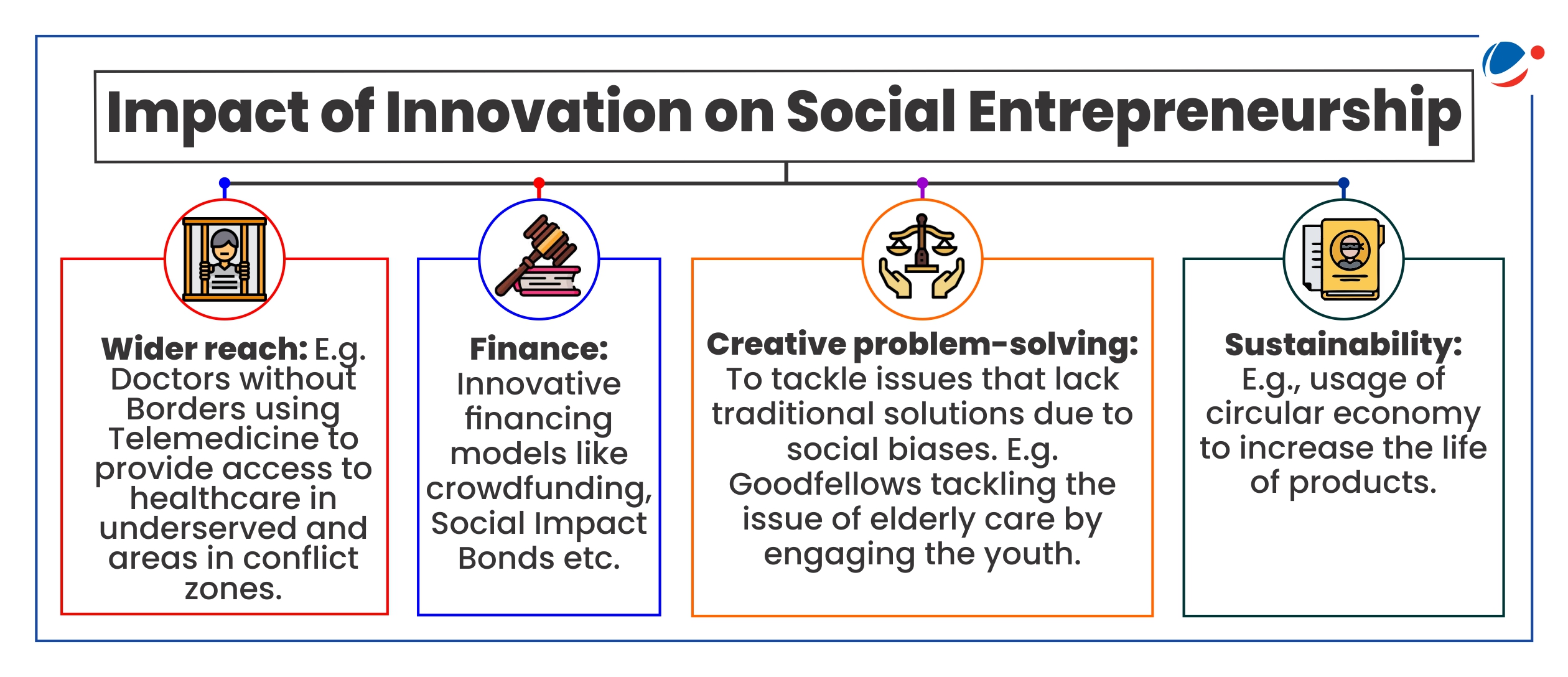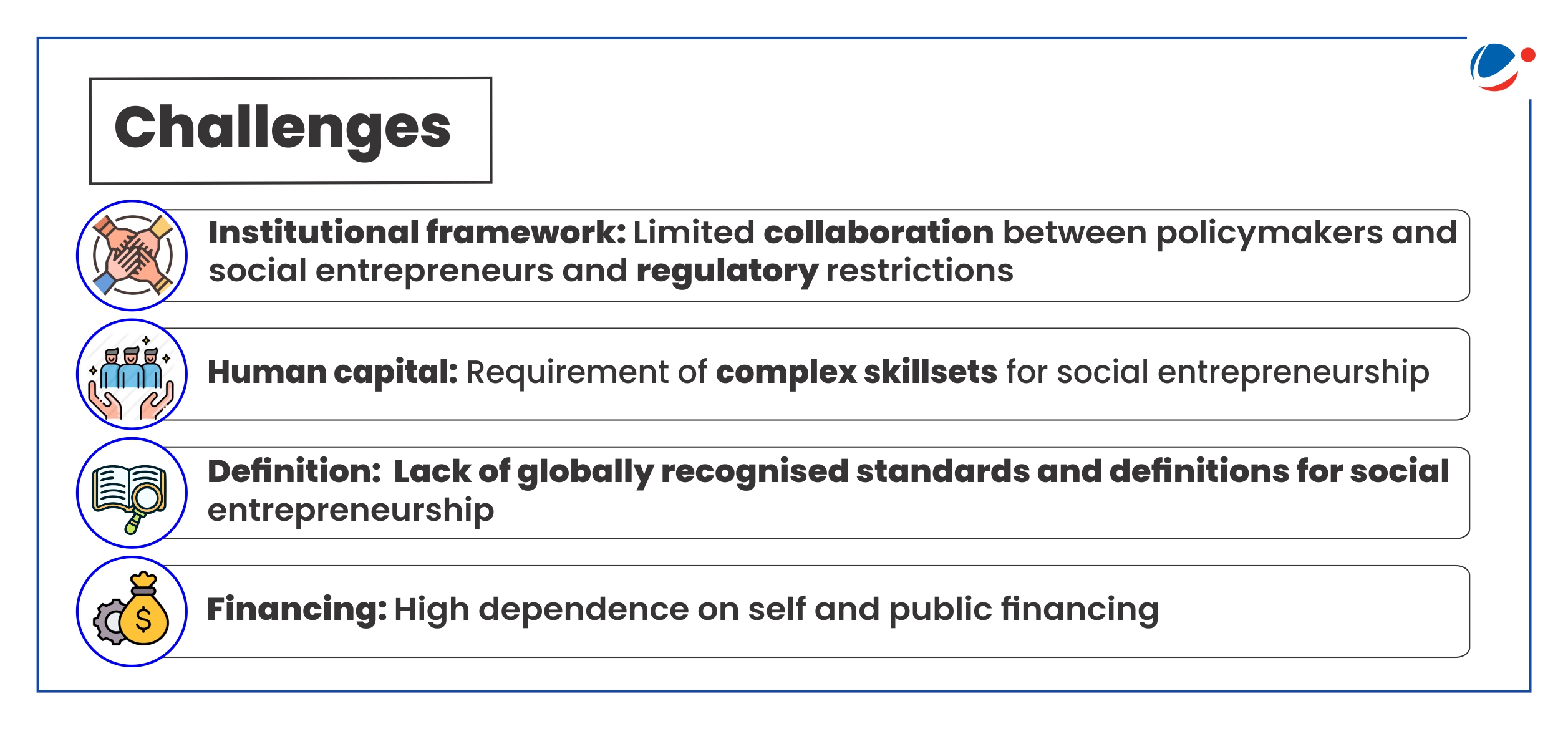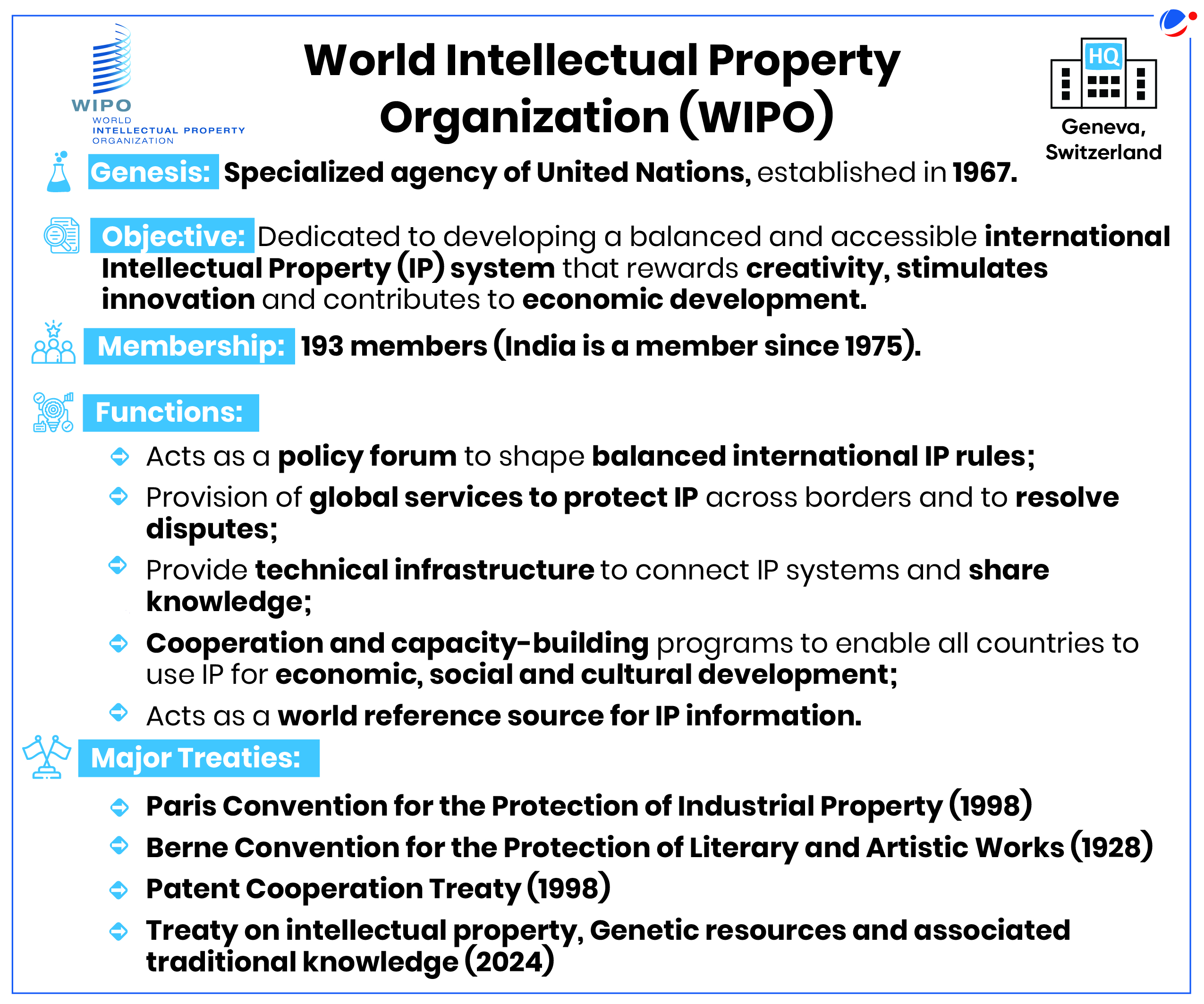Why in the news?
Recently, the Global Innovation Index (GII), 2024 was released by the World Intellectual Property Organization (WIPO), Cornell University and INSEAD Business School.
GII 2024: Key Findings
- Theme: Unlocking the Promise of Social Entrepreneurship.
- Criteria for measurement of innovation: Institutions, human capital and research, infrastructure, credit, investment, linkages; creation, absorption and diffusion of knowledge; and creative outputs.
- Top ranking: Switzerland followed by Sweden, the US and Singapore.
- India:
- India ranked 39th among 133 nations, improving ranking by one position from 40th in 2023 with a score of 38.3.
- India holds the top rank in both lower middle-income economies as well as the Central and Southern Asia region for Knowledge and technology outputs, Creative outputs, Institutions and Business sophistication.
- Bengaluru, Delhi, Chennai and Mumbai are among the top 100 S&T clusters.
Social entrepreneurship and enterprises
- Social entrepreneurship is a way to achieve the generation of economic wealth while addressing various issues like poverty, environmental sustainability and social injustice.
- It combines efficiency, innovation, and resources of profit-making entrepreneurs with the passion, values, mission, and concerns of non-profit organizations.
Difference between Traditional companies and Social enterprises
| Traditional Company | Social Enterprise |
Mission/ Motivation | Generation of economic value by tapping the market opportunities and generation of social value being one of the ways of generating economic value. | Creation of social value by addressing social issues through creative problem-solving to create economic value. |
Goal of innovation processes | To gain an economic and market edge over competitors and have greater market presence. | An inclusive and collaborative approach with community involvement with maximising the social benefit. E.g. Open-source knowledge |
Utilization of surplus | To increase economic gains of stakeholders. | Reinvestment towards solving the social issue and forwarding the social mission. |
Expected future changes | Evolving according to the market needs based on profit maximization. | Creation of an inclusive market, uplifting the excluded communities and prioritising the social impact. |
Potential/Significance of Social Entrepreneurship and Social Enterprises
- Economic growth: Estimates suggest there are up to 11 million social enterprises and 30 million social entrepreneurs globally, contributing around USD 2 trillion to global GDP.
- The estimated market opportunity and potential for social enterprises in India is estimated to be US$ 8 billion by 2025.
- Influencing Policy through expertise: According to a study of over 800 social entrepreneurs, 63% have achieved legislative change or influenced policy and 62% have provided research and or data to policymakers.
- E.g. Ethiopian policymakers collaborated with Tebita Ambulance (a social enterprise) to build emergency medical service standards and licensing system.
- Sustainable development: Provide for a golden mean for ensuring sustainable development and meeting the Sustainable Development Goals (SDGs).
- E.g. SELCO, a social enterprise in India, provides sustainable energy solutions to under-served households and businesses.
- Sensitization and engagement: Provides an opportunity of educating people about need for addressing societal issues with collective engagement along with economic development.
- Integrate social innovation into Corporations: Aids traditional corporations in shifting from Corporate Social Responsibility (CSR) to Corporate Social Innovation.
- Social transformation: Empowering of the vulnerable sections of society and tackling the rising economic inequality due to traditional business models.

India's Initiatives to promote Social Entrepreneurship
|

Conclusion
Social entrepreneurship and enterprises offer a transformative approach to tackling global challenges, by merging business innovation with social goals. By investing in supportive policies, infrastructure and financing, it is possible to create an environment where social enterprises thrive, driving sustainable development and creating lasting positive impacts on a global scale.







